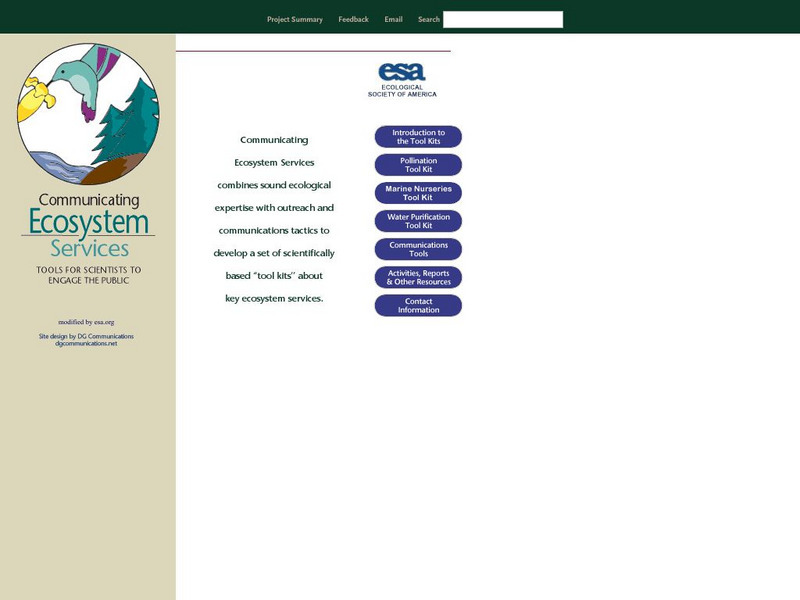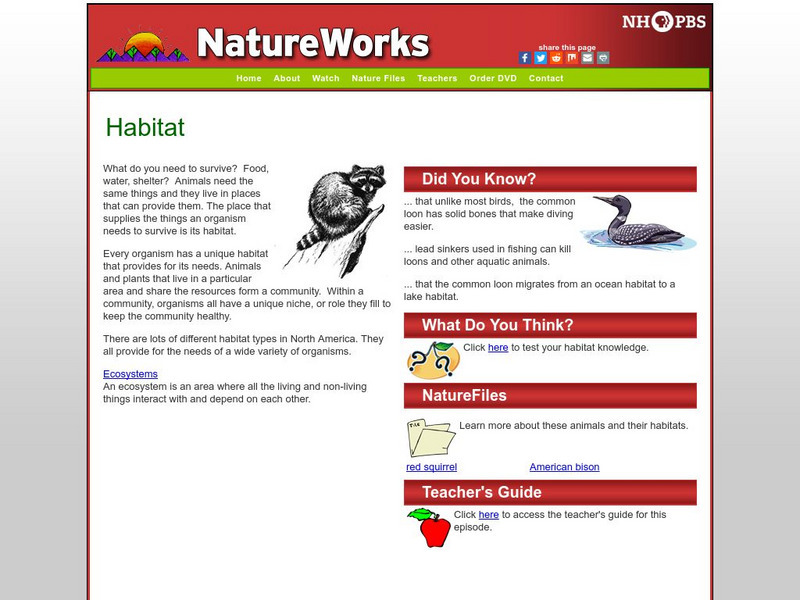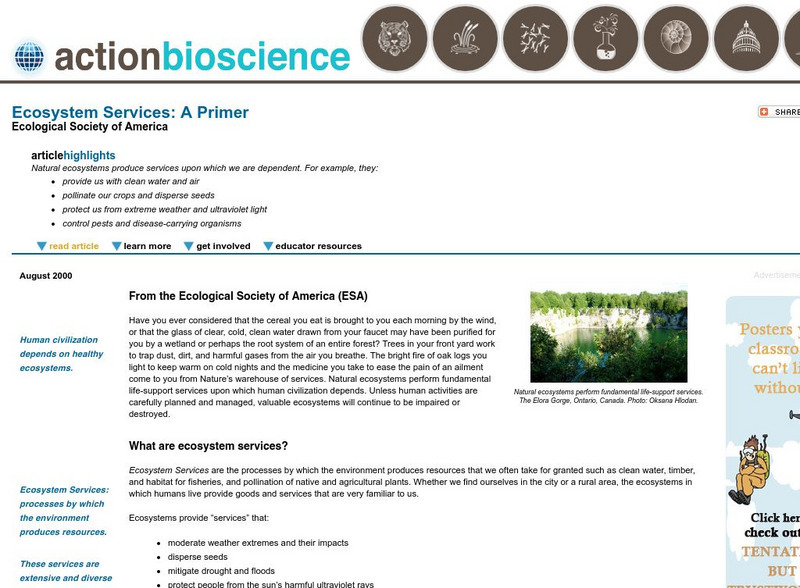Hi, what do you want to do?
Curated OER
Spring Collecting and Identifying Bumble Bees
Students collect bumble bees in the field, record data, identify and release specimens, answer conclusion questions, and send data in to researcher leaders. They make research based conclusions based upon the evidence.
Curated OER
Mallard's Wet Olympics
Students investigate some of the different characteristics of living things. They make observations from reading and interactive media. Students observe that animals move in different ways and have adaptations to aid in that action.
Curated OER
Hide & Seek Butterflies
Students examine a variety of butterflies and discuss how they believe they get their color variations. In groups, they brainstorm the advantages and disadvantages of their color schemes. To end the lesson, they watch butterflies in...
Curated OER
Where Are the Dinosaurs?
Students explore what the dinosaurs were like. In this dinosaur lesson, the teacher peaks student curiosity about dinosaurs. This lesson would be a great starting point for a dinosaur unit since it primarily engages student interest and...
Environmental Education for Kids
Eek!: Habitats: Wetlands
Wetland ecosystems are extremely valuable to wildlife, supporting a greater number of animals than any other type of habitat. Wetlands also absorb flood waters; filter chemicals, sediments, and other impurities out of drinking water;...
Alabama Learning Exchange
Alex: Habitats
What is a habitat? In this lesson, students will identify that a habitat has four elements, food, water, shelter, and space. Students will identify their own habitat and create a brochure describing the habitat in terms of food, water,...
Science Education Resource Center at Carleton College
Serc: Macroinvertebrates and Indicators of Water Quality
During this field activity, students will examine different aquatic habitats, collect and identify macroinvertebrates from each and use an index to determine water quality. They will also be able to explain the meaning of tolerant and...
Other
Environmental Challenges in Farm Management: Change in Habitats: Eutrophication
This site from the University of Reading provides the definition of eutrophication as well as further information about this naturally occurring phenomenon.
ClassFlow
Class Flow: Habitats
[Free Registration/Login Required] A 2nd grade unit on animal environments and habitats. Include web links for information on different land and water habitats, as well as a lesson on food chains.
The Franklin Institute
The Franklin Institute Online: Slick Sea Spills
Use this site to promote environmental awareness in your classroom with this lesson on the effects of oil spills on water habitats.
ClassFlow
Class Flow: Changes in Habitats
[Free Registration/Login Required] A 2nd grade unit on how people and weather can change habitats. Topics include too much and too litter rain (flooding and drought), lightning and fire, and land, water, and air pollution. This flipchart...
Encyclopedia of Life
Encyclopedia of Life: Asian Water Buffalo
The Encyclopedia of Life presents this in-depth overview of Asian Water Buffalos (Bubalus bubalis), including their habitats, size, conservation status, and much more. Images of this species and maps of its global distribution can also...
Encyclopedia of Life
Encyclopedia of Life: Banded Water Snake
The Encyclopedia of Life presents this in-depth overview of Banded Water Snakes (Nerodia fasciata), including their habitats, size, conservation status, and much more. Images of this species and maps of its global distribution can also...
Encyclopedia of Life
Encyclopedia of Life: Water Spider
The Encyclopedia of Life presents this in-depth overview of Water Spiders (Argyroneta aquatica), including their habitats, size, conservation status, and much more. Images of this species and maps of its global distribution can also be...
Environmental Education for Kids
Eek!: Habitats: Lakes
Learn why the lakes and waterways of Wisconsin are so important and about some of the aquatic animals and plants that live there.
American Geosciences Institute
American Geosciences Institute: Earth Science Week: Freddy the Fish
Explore how pollution can affect natural organisms and habitats.
Alabama Learning Exchange
Alex: Tad the Tadpole
Tad the Tadpole is designed to demonstrate how pollution in various areas affects wildlife in their native habitats. The lesson is designed to stress the importance of conservation for animals and their surrounding environment. Upon...
BBC
Bbc Nature: Wildlife: Estuaries
Take a close-up look at the world of estuaries and discover what lives and grows there through videos, pictures, news, descriptions, and external links.
BBC
Bbc Nature: Wildlife: Shallow Seas
Investigate the fascinating world of the shallow seas and discover what lives and grows there through pictures, news, and external links.
Other
Ecological Society of America: Communicating Ecosystem Services
A large collection of resources to aid professionals, community members, and educators in communicating the role and importance of ecosystem services. Issues addressed include pollination, marine nurseries, and water purification....
PBS
Nh Pbs: Nature Works: Habitat
What do you need to survive? Food, water, shelter? Animals need the same things and they live in places that can provide them. This informative site looks at the characteristics, range, habitat, food, reproduction and behavior of the red...
Nature Conservancy
The Nature Conservancy: From America's Rainforest to America's Desert
On this virtual field trip, teachers will help their students travel to the lush, rain-soaked splendor of the Olympic Peninsula and explore the urban watershed of Seattle. Next, they will head to Arizona's dry, desert landscape and take...
TeachEngineering
Teach Engineering: Biodomes
Students explore the biosphere's environments and ecosystems, learning along the way about the plants, animals, resources and natural cycles of our planet. Over the course of lessons 2-6, students use their growing understanding of...
American Institute of Biological Sciences
Action Bioscience: Ecosystem Services: A Primer
It is humans' responsibility to take care of the Earth's many ecosystems. Many of the daily things we take for granted - e.g., clean water and air, pest control, and protection from severe weather - are results of healthy ecosystems....
Other popular searches
- Animals Water Habitats
- Animal Water Habitats
- Land or Water Habitats
- Shallow Water Habitats
- Water Habitats Lesson Plans
- Describe Water Habitats
- Water Habitats Rivers


























